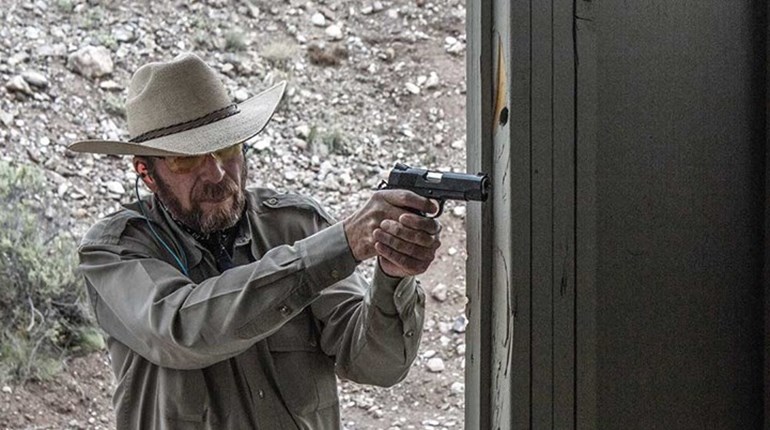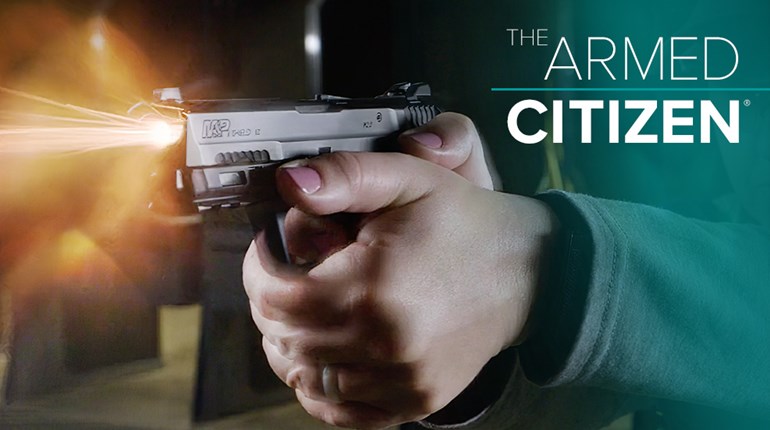
In a Personal Defense Network training video released in 2010, Rob Pincus, professional trainer, author and owner of the I.C.E. Training Company, discussed a concept called the Three Fights Theory. The theory explains that every deadly encounter actually consists of three separate phases—the preparation, the actual conflict and the aftermath. The lesson is that the better we prepare to defend ourselves, the better we will be able to respond appropriately to an actual conflict and live with the aftermath of our actions.
Whether they are familiar with the Three Fights Theory or not, most students of self-defense recognize the relationship between aftermath and preparation. Such students will strive for a comprehensive preparation plan that includes elements that are physical, mental and legal. Physical preparation includes training in the use of lethal or less-than-lethal defensive tools. Mentally preparing to be violent against another human is paramount to being able to call up the willpower to carry through with a physical defense plan should lives be in danger. Being intimately familiar with self-defense statutes as well as adhering to the legal considerations of using deadly force will ensure that their actions will be righteous in the eyes of the law. Although the hope is that we are ultimately preparing for a scenario that never takes place, if it does, the goal is to live with the aftermath of an event in which we responded reasonably, with appropriate timing, proportion and duration, and with legal justification.Do we think of victory only as an outcome where we have escaped an attacker’s intentions?
It occurs to me that as we focus on living with actions that have caused death or great harm to another person, we forget that there is another side to that coin—being prepared to live in an aftermath where we have been on the receiving end of great bodily harm. Do we think of victory only as an outcome where we have escaped an attacker’s intentions? What about a case where something has been taken from us or done to us against our will, yet we lived despite it? Have we trained to also accept this outcome as a victory … or do we see only defeat?
Are we preparing ourselves to be victims or survivors? During the aftermath, survivors may find the healing process poisoned by feelings of shame, confusion, guilt and lowered self-worth, especially if the harm was inflicted during a sexual assault. While feelings of grief, sorrow and even anger are natural steps in the healing process, we need to identify ways to prepare for and guard against feelings of shame and isolation from society during recovery.
Perhaps, reader, you can recall an instance when you’ve heard the phrase “a fate worse than death” used in a comical sense to describe extremely undesirable experiences such as being stuck in rush hour traffic, sitting through a fifth-grade strings concert or having your mother-in-law come for an extended visit. If you have heard it used in this way, then you have almost certainly also heard it used as a euphemism for torture, rape and sexual abuse. The danger in using imagery like this to describe abuse is that it leaves the survivor questioning whether their minds, bodies and lives are tarnished, disposable or worthless after a crime has been committed against them.

When discussing the possibility of surviving a sexual assault, beware of language that perpetuates a toxic self-image for survivors of such attacks. Instead, acknowledge that injuries, even the worst kind, heal with time and tending, and that someone else’s bad behavior does not reflect poorly on you. Before something happens, realize ahead of time that acknowledging and admitting that something bad has happened to you against your will is strength, not weakness. In the aftermath, having a support system and a plan for who to talk to will be one of the best decisions you can make. If we have only considered the possibility of using violence against another person, but not that we may also have to live with the scars of violence done against us, then our First Fight needs some improving.
As of this moment, I have been lucky enough never to have suffered abuse of any form. But that could change at any moment, on any day—perhaps even today. Because there will never be a period in my life when I will be free from criminal targeting, it is crucial to not only prepare to fight, but prepare to survive mentally, emotionally and physically despite the worst thing I can imagine happening to me.Of all I have that can be taken from me, life is the most precious. Because this is true, I can prepare to endure anything to survive.
One day a fight might come that I cannot win. Of all I have that can be taken from me, life is the most precious. Because this is true, I can prepare to endure anything to survive. If I am alive, then there is hope for healing, for loving and receiving love. If I am alive, then I have won.
Frequent A1F Daily contributor Corinne Mosher is a Kansas State Rifle Association Training Committee member and professional shooter.


































